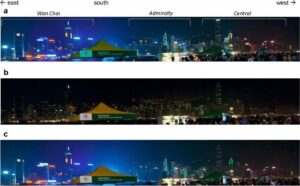
South Australia’s Premier Peter Malinauskas, known for bringing major sporting events to the region, is facing criticism over his decision to award a contract for the redesign of the North Adelaide Golf Course to Greg Norman Golf Course Design. The contract was awarded without a tender process, raising concerns about the use of power by the premier and his government.
The decision to grant the contract directly to Norman’s company, which is associated with the controversial LIV Golf, has sparked debate. LIV Golf, backed by Saudi Arabia, has been criticized for its connection to the country’s human rights record. Despite the controversy, the South Australian government defends the contract, citing Norman’s expertise and reputation.
Controversy Over Contract Awarding
Critics argue that the manner in which the contract was awarded bypassed standard procedures. Crossbench MP Frank Pangallo expressed his disapproval, stating that the City Council was “shafted” by the decision. Pangallo criticized the government for its perceived arrogance and hubris, noting that the administration’s popularity has allowed it to act without accountability.
“I’m supportive of LIV Golf, but the way the premier has gone about this is quite arrogant,” Pangallo told 7.30. “We’ve got a ‘good times’ premier here, focused on sports and entertainment.”
Meanwhile, the government maintains that the decision was necessary to avoid delays in redeveloping the course for LIV Golf events. State Urban Development Minister Nick Champion argued that the redevelopment is in the best interest of South Australia, emphasizing the economic benefits it could bring.
City Council’s Reaction
The announcement of the government’s takeover of the golf course blindsided the City Council, particularly Lord Mayor Jane Lomax-Smith, who was overseas at the time. Lomax-Smith, a former state Labor minister, expressed her disappointment at the lack of collaboration, highlighting the council’s long-standing management of the course.
“Our investment is being removed, and this is not a particularly collaborative way to do business,” Lomax-Smith said. “We were really blindsided by this.”
The council had been working with the government to bring LIV Golf closer to Adelaide’s CBD, and the sudden move has left many feeling excluded from the decision-making process.
Public Opinion and Future Implications
Despite the controversy, some local golfers support the redevelopment, appreciating the prospect of a world-class golf course in the city. However, concerns remain about the financial implications and transparency regarding the costs involved, particularly the fee paid to Greg Norman’s company.
“The government needs to be upfront about it; it’s taxpayers’ money,” Pangallo insisted. “Don’t hide behind cabinet in confidence and commercial confidentiality.”
The government has yet to disclose the exact figures, but Minister Champion assured that such details are typically revealed as projects progress.
Economic and Environmental Considerations
The redevelopment is expected to cost at least $45 million, with the government promising that for every tree removed, three more will be planted. The course is set to host LIV Golf events from 2028, with the commitment to Adelaide lasting until 2031. The government anticipates significant economic benefits, citing an $81 million windfall from this year’s LIV Golf event held at a suburban course.
However, there are concerns about the long-term costs and potential increases in membership fees. Pangallo warned that maintaining a PGA-standard course could be financially burdensome for the state and its residents.
“This is going to cost the state a lot of money to maintain. Who’s going to maintain it? How much are the memberships going to be?” Pangallo questioned.
Looking Ahead
As the debate continues, the South Australian government remains committed to its vision of transforming the North Adelaide Golf Course. The redevelopment is seen as a catalyst for attracting other major events to the city, potentially boosting tourism and local business.
While the controversy over the contract awarding persists, the government is confident that the benefits will outweigh the criticisms. The situation highlights the ongoing tension between development ambitions and procedural transparency, a balance that will be closely watched as the project unfolds.







